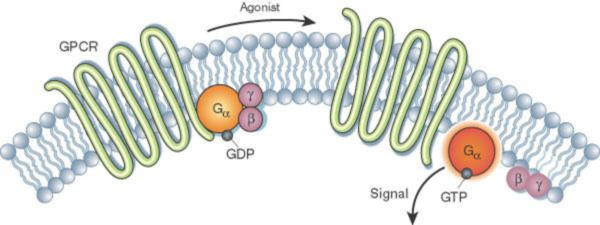Glucocorticoid receptors (GRs) are pivotal regulators of various physiological processes, and their dysregulation has been associated with numerous diseases. Consequently, there is a growing interest in developing targeted therapies that modulate GR activity to treat inflammatory conditions, autoimmune diseases, and even certain types of cancer. The Glucocorticoid Receptors Library, a collection of compounds designed to interact with GRs, represents a valuable resource for researchers in their quest for innovative drug discovery. In this blog, we will delve into the significance of GRs, explore the concept of the Glucocorticoid Receptors Library, and highlight its potential in advancing therapeutic interventions.
Understanding Glucocorticoid Receptors:
Glucocorticoid receptors are a type of nuclear receptor that bind to glucocorticoid hormones, such as cortisol. They function as ligand-activated transcription factors, influencing gene expression and controlling a wide range of physiological processes, including metabolism, immune response, and stress regulation. Dysregulation of GR signaling has been implicated in diseases like asthma, rheumatoid arthritis, inflammatory bowel disease, and even certain types of cancer. As such, researchers recognize the enormous potential for developing therapeutic interventions that specifically target GRs.
Introducing the Glucocorticoid Receptors Library:
The Glucocorticoid Receptors Library is a curated collection of compounds designed to interact with GRs. This library is carefully crafted to provide researchers with a diverse array of molecules that have the potential to modulate GR activity. By screening this library, researchers can identify lead compounds with the ability to selectively target and influence the function of GRs. This unique resource opens new avenues for the development of novel therapeutics with improved efficacy and reduced side effects.
Exploring the Applications of the Glucocorticoid Receptors Library:
Drug Discovery: The Glucocorticoid Receptors Library serves as a valuable tool for screening and identifying lead compounds with high affinity for GRs. Through high-throughput screening, researchers can evaluate thousands of compounds, accelerating the drug discovery process. This library enables the exploration of novel chemical entities and structural modifications required to enhance the selectivity, potency, and pharmacokinetic properties of GR-targeting drugs.
Disease Mechanisms: Studying the interactions between GRs and compounds in the library provides valuable insights into the underlying mechanisms of GR-related diseases. By identifying small molecules that modulate GR function, researchers can gain a deeper understanding of the complex processes regulated by GRs and develop strategies to intervene in disease progression.
Personalized Medicine: The Glucocorticoid Receptors Library can also aid in personalized medicine approaches. By screening patient samples against the library, researchers can identify individual responses to various compounds. This knowledge can guide treatment decisions, facilitating the development of tailored therapies that maximize patient outcomes and minimize adverse effects.
Challenges and Future Directions:
Despite the significant potential of the Glucocorticoid Receptors Library, challenges remain. Ensuring the library’s comprehensiveness and the availability of diverse chemical scaffolds is crucial. Furthermore, optimizing hit selection criteria and improving the predictive power of screening assays are areas for improvement. The integration of advanced technologies, such as machine learning algorithms and computational modeling, can aid in the identification of potential lead compounds.




